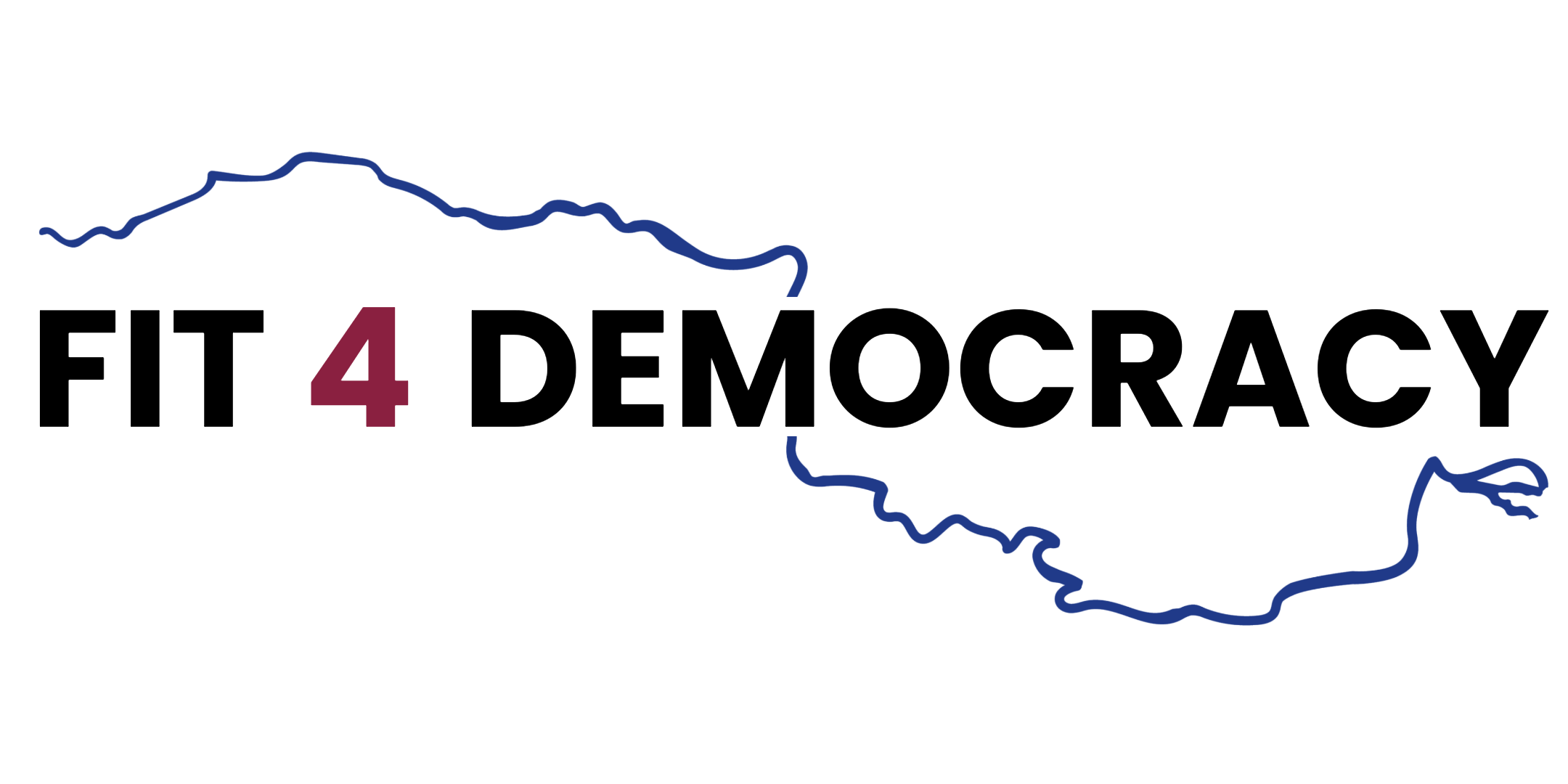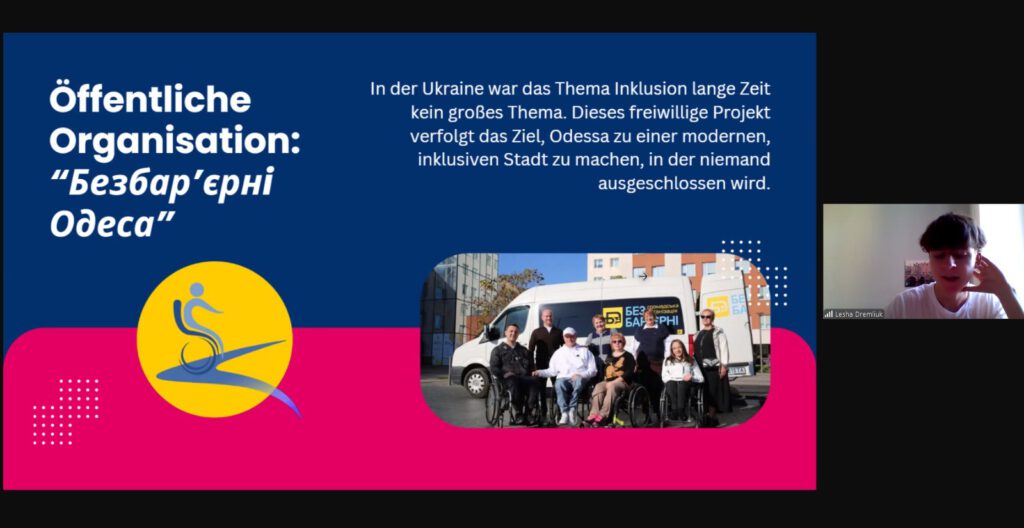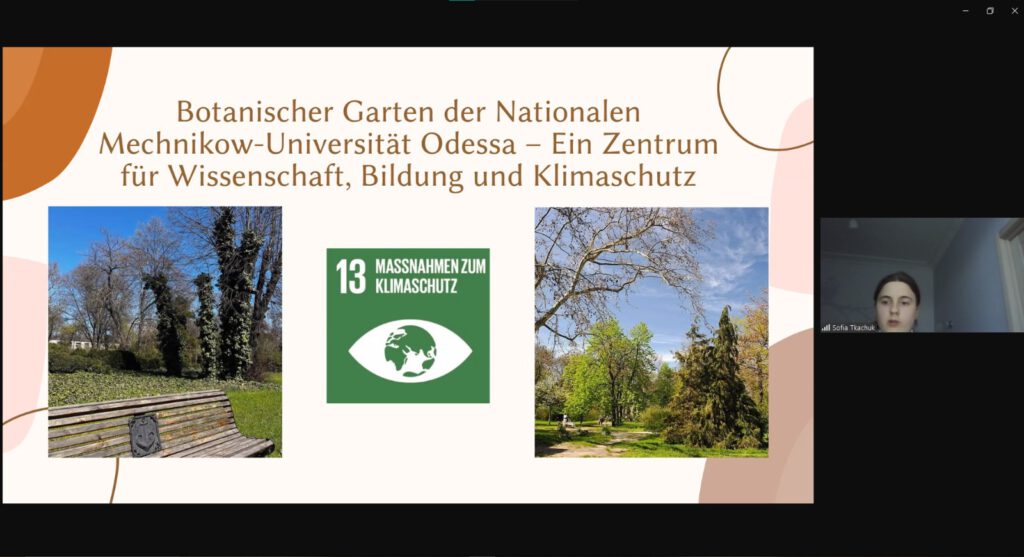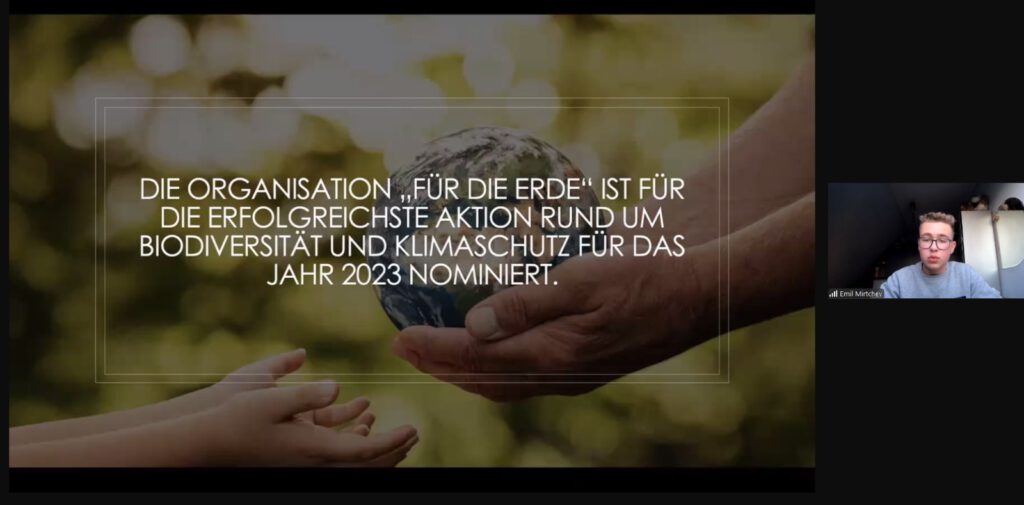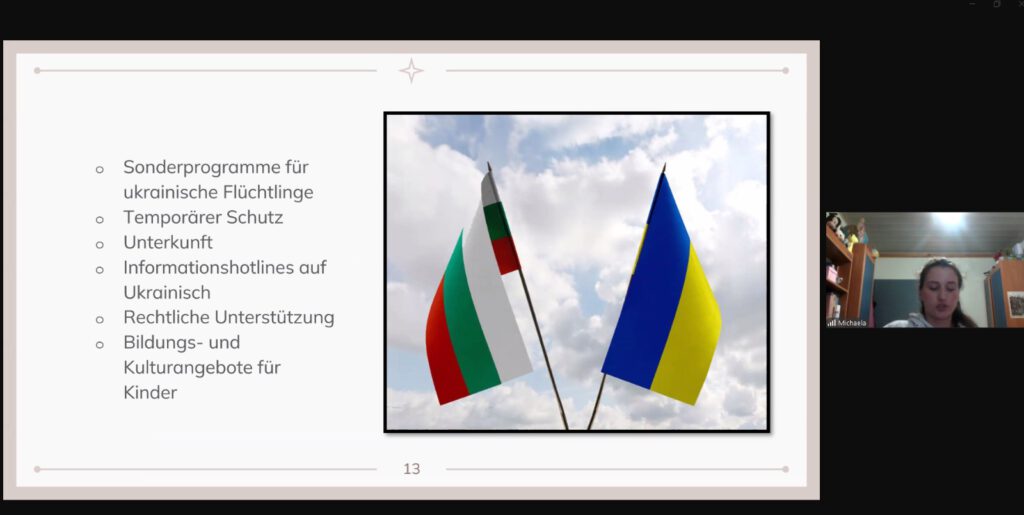Focusing on SDG 10: Reduced Inequalities & SDG 13: Climate Action
The fourth international meeting of the Actionbound project “Sustainability Goals in My City” turned its attention to Reduced Inequalities (SDG 10) and Climate Action (SDG 13). Although students from Ulm were unable to join live due to illness, they remained involved digitally as groups from Odesa and Sofia shared insightful examples from their cities.
Odesa: Striving for Inclusion Amidst Crisis
The Ukrainian group focused on how Odesa is working to become a more inclusive city despite the immense challenges brought on by the war.
To address SDG 10, they presented several ongoing initiatives:
- Physical accessibility improvements, such as new ramps and better sidewalks.
- A digital map where citizens can report accessibility issues across the city.
- Workshops in schools to educate young people about inclusion and empathy.
- Trainings for medical professionals on treating people with disabilities with care and dignity.
- Public awareness campaigns to reduce stigma and promote equal participation.
These actions reflect the urgent need to support people living with war-related injuries and disabilities. A recent feature by Deutschlandfunk sheds further light on this topic and was shared as part of the discussion:
🔗 “Kriegsversehrte in Odessa” – Deutschlandfunk
In comparison, participants noted that similar efforts exist in Germany, where cities also focus on barrier-free environments, inclusive education, and equal access to services.
A Green Oasis in the Heart of Odesa
For SDG 13, the Ukrainian group introduced the Botanical Garden of the Mechnikov National University. As one of the oldest scientific institutions in the city, it plays a crucial role in:
- Conserving endangered plant species.
- Promoting sustainable use of flora and urban biodiversity.
- Offering educational tours and workshops on green urban planning.
Founded officially in 1842, and moved to the French Boulevard in 1880, the garden features many tropical and subtropical species and offers free entry, making it accessible to all citizens.
Participants drew comparisons to botanical gardens in Germany, which often include medicinal plant collections and provide similar educational and conservation functions.
Sofia: Welcoming Refugees and Building a Greener Future
The Bulgarian group focused on two examples that illustrate Sofia’s engagement with SDG 10 and SDG 13.
Under SDG 10, they presented the work of the State Refugee Agency (DAB-MS). Established in the 1990s, the agency coordinates:
- Reception centers for refugees.
- Language classes, employment assistance, and integration programs.
- Specific support for Ukrainian refugees, in response to the ongoing war.
Participants highlighted how the agency works closely with governmental bodies and NGOs to foster inclusion and dignity for newcomers.
For SDG 13, Sofia stood out as one of the greenest capitals in Europe. Efforts include:
- An expanding metro system with four lines.
- Electromobility incentives and charging infrastructure.
- Low-emission zones to reduce air pollution.
- Advocacy by environmental groups like Verein für die Erde (“For the Earth”).
- Long-term visions of car-free cities to promote sustainable living.
In contrast, participants observed that while Odesa has a well-used public transport system, bicycle lanes and pedestrian infrastructure are still limited, making Sofia’s achievements particularly noteworthy.
The next digital meeting will take place on May 27, 2025, focusing on two new goals:
Good Health and Well-being (SDG 3) and Gender Equality (SDG 5).
Presentations
Odesa
Sofia
Ulm
